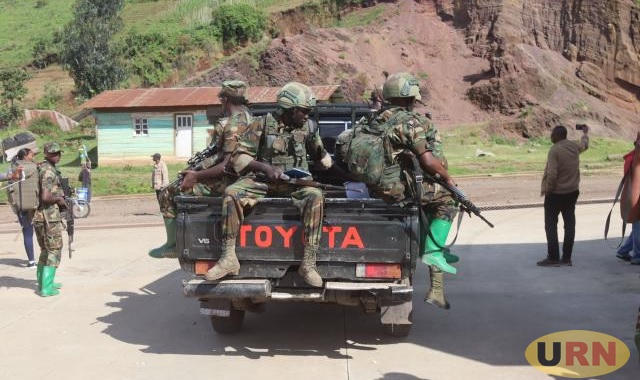
Kinshasa, DRC | THE INDEPENDENT | Fierce fighting between the March 23 Movement (M23) rebels and the Armed Forces of the Democratic Republic of Congo (FARDC), alongside allied forces, has resumed in the eastern DRC, just 72 hours after the signing of a peace agreement between Rwanda and DR Congo.
On Monday, clashes broke out in Munguli and Kihondo groupements, as well as Kikuro in the Tongo groupement, located in Rutshuru territory, North Kivu Province. Residents reported heavy and light weapons fire, which forced hundreds of civilians to flee the area for safety. Later that evening, Lawrence Kanyuka, political spokesperson for the M23 rebels, issued a statement accusing FARDC soldiers of bombing a civilian aircraft that was delivering humanitarian aid to Minembwe in South Kivu Province.
Describing the incident as a “heinous crime, premeditated and executed with unparalleled cruelty,” Kanyuka said the bombing resulted in the loss of lives and the destruction of critical supplies, including medicines and food meant for a population already suffering from years of conflict.
“Barely 72 hours after signing a peace agreement in Washington, the bloodthirsty Kinshasa regime has once again committed an act of unspeakable barbarity by bombing, on Monday, June 30, 2025, a civilian aircraft carrying humanitarian aid destined for Minembwe, in South Kivu. This heinous crime… destroyed essential supplies… and fuels an unprecedented humanitarian catastrophe in Minembwe,” Kanyuka said.
He further accused FARDC, along with its coalition partners—the Burundi National Defense Forces (FNDB), the FDLR, and Wazalendo militias—of launching multiple attacks on civilians in Kanyola, Kabare, Kigogo, Kadasomwa, Nyabiondo, and surrounding areas in Lubero territory, North Kivu. “These targeted acts of violence against the Banyamulenge will not go unpunished and must cease immediately,” he added.
FARDC has not yet issued a response regarding the accusations. M23 rebels currently control vast swathes of territory in North and South Kivu provinces, including the major cities of Goma and Bukavu, Goma International Airport, and Kavumu Airport. The M23 insurgency, which reignited in 2022 under the leadership of Bertrand Bisimwa and Emmanuel Sultan Makenga, has long been a flashpoint in the region.
The DRC government continues to accuse Rwanda of backing the rebels—a claim both Rwanda and the M23 strongly deny. The group claims its rebellion is aimed at fighting corruption, xenophobia, and discrimination within the Congolese government. On June 27, 2025, a peace deal was signed in Washington, D.C., between Rwanda and the Democratic Republic of Congo. The agreement, brokered with the support of U.S. President Donald Trump, aims to end years of bloodshed and pledges mutual withdrawal of support for guerrilla forces.
The deal also outlines steps for the disengagement, disarmament, and conditional integration of armed groups operating in eastern DRC. While details remain scant and past peace agreements in the region have largely failed, both the U.S. and Congolese leaders described the accord as a “generational victory.” Despite these declarations, renewed fighting and fresh allegations point to the fragility of the deal and raise concerns about its sustainability in one of Africa’s most volatile conflict zones.
****
URN
 The Independent Uganda: You get the Truth we Pay the Price
The Independent Uganda: You get the Truth we Pay the Price



